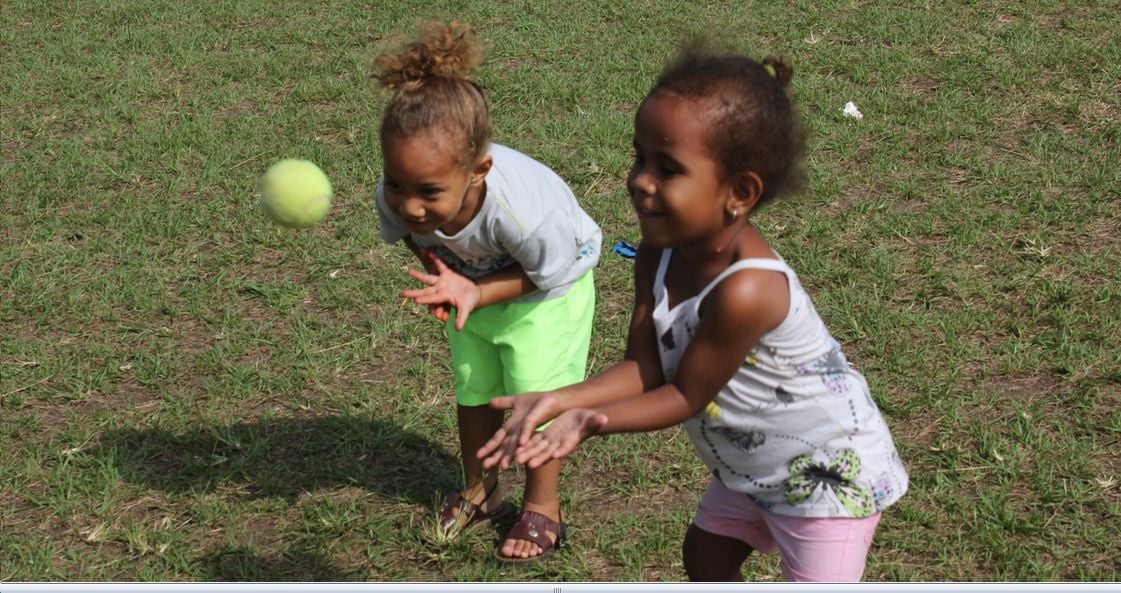The team mandated by the Government of Vanuatu to protect children across the country are reminding parents of their responsibilities this Children’s Day.
Today, as communities celebrate children and reflect on their wellbeing, Child Social Welfare Coordinator Tristelle Karae says the Child Desk at the Ministry of Justice, Youth and Community Services (MJYCS) continues to see the consequences of family breakdown and childhood neglect.
The Child Desk leads the government’s child protection efforts with specialists working across all provinces. These teams are currently seeing concerning levels of neglect among families. “There are five main abuses that our desk addresses,” said Ms Karae. “Physical abuse, sexual abuse, exploitation, neglect, emotional abuse. There’s a lot of neglect happening. We can’t be in a home constantly to see everything, but we witness the downstream evidence in the behaviour and mental health of children.”
Ms Karae believes rising youth crime and antisocial behaviour is one visible outcome of this neglect in Port Vila and such issues often start with simple things, like quality time at home. “The family is the bedrock of our society. It is where we bring our biggest love and care. Sometimes, we need to refocus on that. Small things matter. Like sitting down and talking to your kids, checking on homework, doing reading with your child, speaking to them to see how they are. A lot of our children have really gone astray… and we can change that,” she said.
Amid concerns that modern lifestyles and economic pressures are affecting family dynamics, the Child Desk team are encountering more cases of parents disconnecting from their responsibilities for several reasons, including some parents participating in seasonal labour schemes abroad.
“We’re picking up on a lot of these cases where parents just take off, leave their children… and a lot of them are related to the labour mobility schemes,” Ms Karae said. “They find new partners, make a new life for themselves and the child’s back home and neglected. We are working very well with the schemes to tackle these issues, but parents must also play a key role.”
The Child Desk is made up of 12 members, including community service officers, compliance officers and protection officers. Together, their remit is to work across community, provincial and national levels to prevent harm, support families, and promote safe environments for all children.
Their work spans from community-level awareness sessions with police and chiefs, to case management, referrals, and policy development. Officers also deliver family support activities and targeted outreach in rural and urban areas.
With new challenges emerging, the team is growing and adapting. “Moving forward with the desk, we are looking to expand on our structure so that we could have more people on board because there’s an increasing number of cases,” said Ms Karae.
However, despite the workload, Ms Karae said signs of progress are visible. “There’s a lot of good work coming out… small, small pockets of change,” she said. “We see change when cases have been resolved and people are coming in to request talks in communities, with chiefs, and in churches. It’s telling us that people see the importance of our work. And once communities understand, they are very open and want to do more work with us.”
Through its partnership with the Government of Vanuatu, Australia has been a strong partner in the Child Desk’s work in recent years. Working across the justice sector, the partnership’s justice and policing teams have helped the Child Desk deepen its connections with police, justice agencies, and the courts. “The Vanuatu-Australia partnership allows us more opportunities to share information and knowledge. It provides guidance, and alongside Ministry leadership, it helps us to support each other and ensure more justice services put the best interests of children at their heart,” said Ms Karae.
With important policy and legislative work in the pipeline for the coming months, Ms Karae believes Children’s Day offers an opportunity to remind parents that the most important environment a child can have is a safe and loving home.
“Your role as a parent should always be at the front of your mind,” said Ms Karae. “Despite the changing environments for work, lifestyles should not pull you away from your parenting responsibilities. A child should feel they belong in a home… And each of us can make that happen through our actions.”
For any parent, carer or community member concerned about a child’s wellbeing, the Desk remains open. “You can walk in,” said Ms Karae. “We are welcome to anybody who reports a case.”


